#hera akraia
Explore tagged Tumblr posts
Text











♛ ✦ ʜᴇʀᴀ • 𝙌ᴜᴇᴇɴ ᴏғ ᴛʜᴇ ɢᴏᴅs, ɢᴏᴅᴅᴇss ᴏғ ᴛʜᴇ sᴋʏ, ᴍᴀʀʀɪᴀɢᴇ, ғᴀᴍɪʟʏ, ᴄʜɪʟᴅʙɪʀᴛʜ, ᴍᴏᴛʜᴇʀʜᴏᴏᴅ, ᴡᴏᴍᴇɴ, & ʀᴜʟᴇʀs/ʟᴇᴀᴅᴇʀs ✦ ♛

#hellenic polytheism#hellenism#hellenic pagan#hellenic deities#hellenic paganism#hellenic gods#witchcraft#helpol#hera#hera Basileia#hera Teleia#hera Argeia#hera Nympheuomene#Hera Hyperkheiria#Hera Gamelia#Hera Eileithyia#Hera Chrysothronos#Hera Akraia#Hera Boopis#Hera Leukolenos#Hera Zygia#hera goddess#hera greek mythology#hellenic worship#hera worship
337 notes
·
View notes
Text
Heraion of Perachora — sanctuary of Hera Akraia
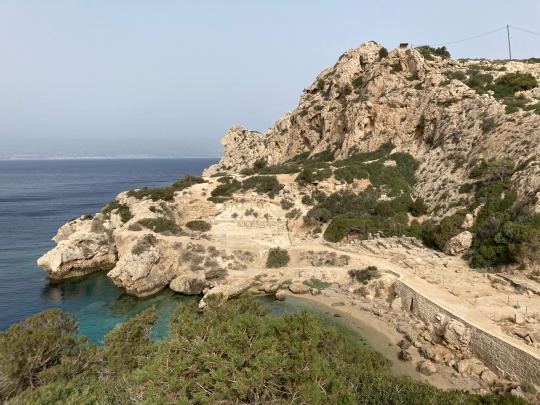
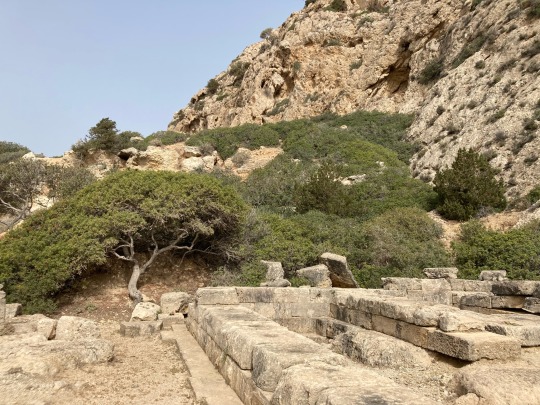
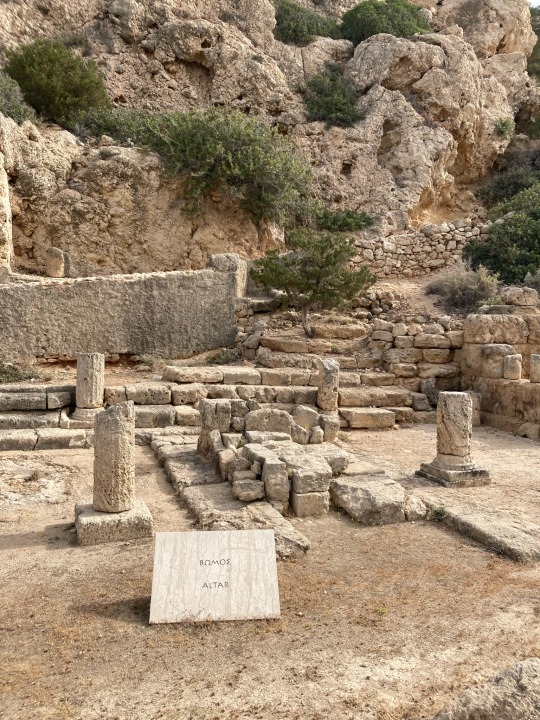
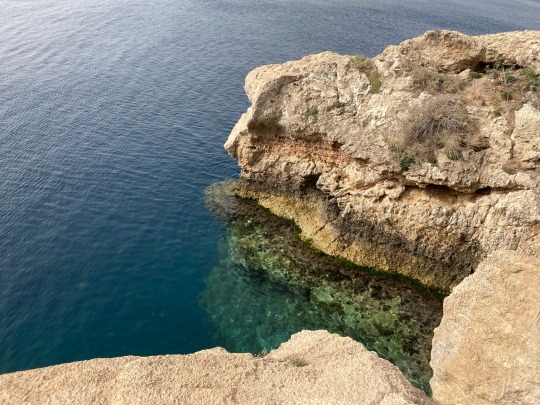
#i could only spend 30 minutes there but it’s beautiful#greece : may 2024#—#corinthia#hera#temple#ancient temples#hera*#hera deity#archeological site#helpol#classics#hera akraia#hera acraia#greece#ancient greece#ancient greek religion#wine dark sea
100 notes
·
View notes
Note
I was just about to make a post about this!! (luckily for me someone else went through the trouble of compiling sources 😜). In case you're interested, the Scholia on Pindar goes something like this:
"Medea is mentioned because she lived in Corinth and ended a famine that afflicted the Corinthians by sacrificing to Demeter and the Lemnian nymphs. There Zeus fell in love with her, but Medea did not yield, avoiding the anger of Hera. Therefore, Hera promised to make her children immortal. After their deaths, the Corinthians honored them, calling them 'μιξοβαρβάρους' [mixed-barbarians]." (Schol. Pind. Olympian. 13.74g.)
I think the implication is that the children are deified after their deaths, an aitiological reason for why they receive the usual chthonic worship of heroes (inhabiting the edge between the dead and the divine):
"But as their death was violent and illegal, the young babies of the Corinthians were destroyed by them [Medea's Children] until, at the command of the oracle, yearly sacrifices were established in their honor and a figure of Terror was set up. This figure still exists, being the likeness of a woman frightful to look upon, but after Corinth was laid waste by the Romans and the old Corinthians were wiped out, the new settlers broke the custom of offering those sacrifices to the sons of Medea, nor do their children cut their hair for them or wear black clothes." (Paus. 2.3.7)
Do we know anything about the relationship between Hera and Medea, apart from the fact that she made her fall in love with Jason?
In Euripides' Medea (1378–1383), she says that she will bury her children in the sanctuary of Hera Akraia and that holy rites will be held in payment for their murder.
A similar idea appears in sources where Medea doesn't herself kill the children, or at least not on purpose. Apparently in the Corinthiaca of Eumelos Medea buried them in Hera's temple in an attempt to make them immortal: „Through her [Medea] Jason was king in Corinth, and Medea, as her children were born, carried each to the sanctuary of Hera and concealed them, doing so in the belief that so they would be immortal. At last she learned that her hopes were vain, and at the same time she was detected by Jason. When she begged for pardon he refused it, and sailed away to Iolcus. For these reasons Medea too departed, and handed over the kingdom to Sisyphus.” (Pausanias, Description of Greece 2.3.11)
„According to Parmeniskos, when Medeia became queen of Corinth, she was despised by the other Corinthian women for being a barbarian and an enchantress, with the result that her children, seven boys and seven girls, were all killed by them in the shrine of Hera Akraia, where they tried to find refuge. Because of this act of sacrilege a plague befell the city and many Corinthians died. The oracle prophesied that, in order to cleanse the city from this pollution, the Corinthians need to select seven boys and seven girls and have them spend a whole year inside Hera's precinct, as well as offer sacrifices to appease the goddess' anger.” (Christos K. Tsagalis, Early Greek Epic Fragments I: Antiquarian and Genealogical Epic)
Similarly, Pseudo-Apollodoros (Library 1.9.28) mentions an account in which Medea left her children in the temple of Hera Akraia where they were killed by the Corinthians: „Another tradition is that on her flight she left behind her children, who were still infants, setting them as suppliants on the altar of Hera of the Height; but the Corinthians removed them and wounded them to death.”
Finally a variant that brings Hera and Medea even closer is attested in a scholion to Pindar (Olympian 13.74g). According to this source, Zeus took an erotic interest in Medea but she refused to have anything to do with him out of respect or fear of Hera, whereupon Hera promised to make Medea's children immortal. She didn't keep her promise for whatever reason, however, and the children died anyways.
#greek mythology#greek myths#greek gods#hellenic deities#tagamemnon#hera#medea#medeia#Hera Akraia#spooky baby murdering ghost children#they're as vengeful as their mother ❤️
51 notes
·
View notes
Text
Compiling every ancient source where Medea doesn’t kill her children
Disclaimer: I’m not doing this to delegitimize Euripides’ play, only to bring attention to alternative tellings of the story
Scholia to Euripides’ Medea 9.1-11 (C1st A.D)
“There’s a story from the philosophers that is much repeated—one Parmeniskos also offers—that Euripides changed the murder of the children to Medea because he accepted five talents from the Korinthians. [He claims] that the children of Medea were killed by the Korinthians because they were angry over her ruling the city and they wanted there to be an end of her ruling in Korinth, because it was her paternal [right]. For this reason he changed the [responsibility] to Medea. Hippus presents [accounts] about her residency in Korinth, as does Hellanikos. Eumelos and Simonides report that Medeia ruled Korinth. In his work called On Isthmian Affairs, Mousaios reports that Medeia was immortal, and he explains this also in his work on The Festivals of Hera Akraia.”
264.1-11
“Parmeniskos writes the following for this line: “Because the Korinthian women did not want to be ruled by a barbaric, potion-pouring woman, they conspired against her and [planned] to kill her children, seven boys and seven girls. [Euripides says that she only had two]. They fled, pursued, into the temple of Hera Akraia and they stayed there. But even then the Korinthians did not hold back: they slaughtered all of them at the altar. Then a plague fell over the city, and many bodies were perishing because of a sickness. They received an oracle that the god must be propitiated for the hunt of Medeia’s children. This is why each year during the appointed time seven girls and boys from the noblest families return to the precinct of the goddess and appease their rage—and the anger of the goddess on their behalf—with sacrifices.”
Pausanias, Description of Greece, book 2, chapter 3 (C2nd A.D.)
As you go along another road from the market-place, which leads to Sicyon, you can see on the right of the road a temple and bronze image of Apollo, and a little farther on a well called the Well of Glauce. Into this they say she threw herself in the belief that the water would be a cure for the drugs of Medea. Above this well has been built what is called the Odeum (Music Hall), beside which is the tomb of Medea's children. Their names were Mermerus and Pheres, and they are said to have been stoned to death by the Corinthians owing to the gifts which legend says they brought to Glauce.
[7] But as their death was violent and illegal, the young babies of the Corinthians were destroyed by them until, at the command of the oracle, yearly sacrifices were established in their honor and a figure of Terror was set up. This figure still exists, being the likeness of a woman frightful to look upon but after Corinth was laid waste by the Romans and the old Corinthians were wiped out, the new settlers broke the custom of offering those sacrifices to the sons of Medea, nor do their children cut their hair for them or wear black clothes.
[8] On the occasion referred to Medea went to Athens and married Aegeus, but subsequently she was detected plotting against Theseus and fled from Athens also; coming to the land then called Aria she caused its inhabitants to be named after her Medes. The son, whom she brought with her in her flight to the Arii, they say she had by Aegeus, and that his name was Medus. Hellanicus, however, calls him Polyxenus and says that his father was Jason.
[9] The Greeks have an epic poem called Naupactia. In this Jason is represented as having removed his home after the death of Pelias from Iolcus to Corcyra, and Mermerus, the elder of his children, to have been killed by a lioness while hunting on the mainland opposite. Of Pheres is recorded nothing. But Cinaethon of Lacedaemon, another writer of pedigrees in verse, said that Jason's children by Medea were a son Medeus and a daughter Eriopis; he too, however, gives no further information about these children.
[10] Eumelus said that Helius (Sun) gave the Asopian land to Aloeus and Epliyraea to Aeetes. When Aeetes was departing for Colchis he entrusted his land to Bunus, the son of Hermes and Alcidamea, and when Bunus died Epopeus the son of Aloeus extended his kingdom to include the Ephyraeans. Afterwards, when Corinthus, the son of Marathon, died childless, the Corinthians sent for Medea from Iolcus and bestowed upon her the kingdom.
[11] Through her Jason was king in Corinth, and Medea, as her children were born, carried each to the sanctuary of Hera and concealed them, doing so in the belief that so they would be immortal. At last she learned that her hopes were vain, and at the same time she was detected by Jason. When she begged for pardon he refused it, and sailed away to Iolcus. For these reasons Medea too departed, and handed over the kingdom to Sisyphus.”
Pseudo-Apollodorus, Bibliotheca (C2nd A.D.)
“Another tradition is that on her flight she left behind her children, who were still infants, setting them as suppliants on the altar of Hera of the Height; but the Corinthians removed them and wounded them to death.”
Semi-relevant bonus:
Scholia to Pindar’s Olympian 13.74g. (C4th-C5th A.D)
"Medea is mentioned because she lived in Corinth and ended a famine that afflicted the Corinthians by sacrificing to Demeter and the Lemnian nymphs. There Zeus fell in love with her, but Medea did not yield, avoiding the anger of Hera. Therefore, Hera promised to make her children immortal. After their deaths, the Corinthians honored them, calling them 'μιξοβαρβάρους' [mixed-barbarians]."
To conclude, some scholarly wisdom:
“Some scholars have argued that Euripides was the first to make Medea directly responsible for killing her children in an act of revenge for Jason’s infidelity, an issue discussed by McDermott (1989, 9–24). Others, such as Michelini (1987), have argued that the innovation in this respect came from an earlier playwright, Neophron, and that Euripides was following a new variant rather than inventing it.”- Medea, Emma Griffiths
P.S: I’m not a classicist, if you know of any source that I’ve missed, please let me know!
23 notes
·
View notes
Text
My Favorite Epithets of Hera:

Akraia, "of the heights".
Anassa, "queen".
Antheia, of the flowers, the blooming, the blossoming, the friend of flowers, a surname of Hera, under which she had a temple at Argos.
Argeia, of Argos, a surname of Hera derived from Argos, the principal seat of her worship.
Boôpis, "cow eyed", an epithet given to Hera by Homer.
Gamêlia, "of marriage", and of the gamêlioi theoi, the divinities protecting and presiding over marriage. It is said by Plutarch, that those who married required the protection of five divinities: Zeus, Hera, Aphrodite, Peitho, and Artemis. The Athenians called their month of Gamelion after these divinities.
Hêniokhê, "of the chariot".
Hippeios, equester/equestris.
Hyperkheiria, "whose hand is above", the goddess who holds her protecting hand over, a surname under which Hera had a sanctuary at Sparta.
Nymphevomenē, "led as a bride", in relation to her festival Daedala.
Samia, a surname of Hera, derived from her temple and worship on the island of Samos. There was a tradition that Hera was born or brought up on Samos.
Zygia and Zygios are surnames of Hera and Zeus, "yoke of marriage", describing them as presiding over marriage.
(Art by Yliade)
35 notes
·
View notes
Text

𝙷𝚎𝚕𝚕𝚘 𝚎𝚟𝚎𝚛𝚢𝚘𝚗𝚎!
This is the second post for an overview of various Greek deities. The formatting is the same as my post for Lord Hermes but this post will be about Lady Aphrodite! And if things seem a bit repeatative....well I apologise. I did use my Hermes post as a base and only changed the information provided.
Lady Aphrodite is fairly new to my list of deities I'm working with. She's a lovely goddess to honor and work with. Strict when needed but knows when to show you the love that you need. Praise be Lady Aphrodite!
𝙲𝚘𝚗𝚝𝚎𝚗𝚝𝚜
Who is Aphrodite?
Epithets
Family Tree
Symbols & Associations
Offerings & Devotions
Festivals
Outro
Sources

Aphrodite is the Olympian goddess of love, procreation, seduction, beauty, pleasure, happiness, and war.
She is typically depicted as a beautiful woman with Eros by her side, and she is usually nude in ancient depictions of her.
Pop Culture
Aphrodite is another fairly popular goddess. She can be seen in any media depicting Greek myths and featuring the Greek gods. Percy Jackson, Hades game, Epic the Musical, the list can go on.

There are many different epithets for Aphrrodite. What are epithets? Well they are essentially surnames for the gods to describe their different aspects. If you wish to call upon a specific aspect of a god you would use their epithet when talking with them.
Now for the different epithets of Aphrodite. I will be including the transliteration version of the names as the Greek names use special characters that I am unsure if it’ll even show up. So we’re getting close enough.
𝙲𝚞𝚕𝚝 𝙴𝚙𝚒𝚝𝚑𝚎𝚝𝚜
A
Ambologêra
Postponer of Old Age
Apatouros
Deceptive One
Apostrophia
Averter of (Unlawful Desires)
Areia
Of Ares, Warlike
D
Dôritis
Bountiful
E
Epistrophia
She who Turns to (Love)
Euploia
Fair Voyage
H
Hêrê
Of Hera (of Marriage)
Hôplismenê
Armed
K
Kataskopia
Spying, Peeping
L
Limenia
Of the Harbour
M
Makhanitis
Deviser, Contriver
Melainis
Black (of Night)
Migôntis
Union (Marital)
Morphô
Of Shapely Form
N
Nikêphoros
Bringer of Victory
Nymphia
Bridal
O
Ourania
Heavenly, Divine (Love)
P
Pandêmos
Common to all people (Love)
Pontia
Of the Sea
Praxis
Action (Sexual)
Psithyristês
Whispering
S
Symmakhia
Ally (in Love)
X
Xenia
Of the Foreigner
Location Based
Akraia
Of the Heights
Amyklaios
Of Amyclea (Laconia)
Anadyomenê
Risen from the Sea
Eyrkinê
Of Eryx (Sicily)
Kastiniê
Of Mt. Castium (Pamphylia)
Kêpois
Of the Gardens
Knidia
Of Cnidus (Caria)
Kôlias
Of Colias (Attica)
Kythereia
Of Cytherea (Laconia)
Kypria
Of Cyprus
Paphia
Of Paphos (Cyprus)
Pyrênaia
Of Pyrenees Mts. (Gaul)
Syria
Of Syria, Syrian
𝙿𝚘𝚎𝚝𝚒𝚌 𝙴𝚙𝚒𝚝𝚑𝚎𝚝𝚜
A
Aphrogeneia
Foam-Born
Aphrogenês
Foam-Born
D
Dia
Divine, Shining
Diôniaia
Daughter of Dione, Daughter of Zeus
Dios thugatêr
Daughter of Zeus
E
Eustephanos
Richly-Crowned, Well-Girdled
K
Khryseê
Golden
Kythereia
Of Cytherea (Laconia)
Kyprus
Of Cyprus
Kyprogenês
Of Cyprus-Born
Kyprogeneia
Of Cyprus-Born
Kyprogenêa
Of Cyprus-Born
P
Paphia
Of Paphos (Cyprus)
Paphiê
Of Paphos (Cyprus)
Philommeidês
Laughter-Loving
Philomeidês
Laughter-Loving
Philommêdês
Genital-Loving
Pothôn Mêtêr
Mother of Desire

𝙿𝚊𝚛𝚎𝚗𝚝𝚜
FATHER ;
Zeus - King of the Gods
Ouranos - primordial god of the sky
MOTHER ;
Dione - titan goddess of the oracle of Dodona
Hemera - primorial goddess of the day
Parents depend on the myth. Can be born of the genitals of Ouranos, Zeus & Dione, or Ouranos & Hemera
𝙳𝚒𝚟𝚒𝚗𝚎 𝚂𝚒𝚋𝚕𝚒𝚗𝚐𝚜
*If using the myth where Zeus is Aphrodite’s father.
Lady Artemis
Goddess of the Moon, the Hunt, Wild Animals & Wilderness, & Virginity
Lord Apollon
God of the Sun, Prophecy, Truth, Music & Poetry, Archery, Healing, & Light
Lord Ares
God of War
Lady Athena
Goddess of War, Wisdom, & Arts & Crafts
Lord Hermes
God of herds and flocks, travellers and hospitality, roads and trade, thievery and cunning, heralds and diplomacy, language and writing, athletic contests and gymnasiums, astronomy and astrology
Lord Hephaestus
God of Fire, the Forge, Metalworking & Sculpting, Craftsmen, & Technology
Lord Dionysus
God of Wine, Fertility, & Theatre
*If using the myth where Ouranos is Aphrodite’s father.
Kronos
King of the Titans and god of time
Koios, Krios, Iapetos
Elder Titans
Hyperion
Titan god of heavenly light
Okeanos
Primoridal titan god of fresh water
Theia
Titan goddess of sight and the shining ether of the bright, blue sky
Rheia
Titan mother of the gods, goddess of female fertility, motherhood, and generation
Themis
Titan goddess of divine law and order
Mnemosyne
Titan goddess of memory and remembrance, the inventress of language and words
Tethys
Titan goddess of the primal font of fresh water which nourishes the earth
Brontes, Steropes, Arges
The Elder Kyklopes
Briareos, Kottos, Gyes
The Hekatonkheires
The Erinyes
(Furies)
𝙳𝚒𝚟𝚒𝚗𝚎 𝙲𝚑𝚒𝚕𝚍𝚛𝚎𝚗
Anteros - god of reciprocal (or unrequited) love // Son of Ares & Aphrodite
Beroe - goddess of the city of Beroe // daughter of Adonis & Aphrodite // wife of Poseidon
Deimos - god of fear // son of Ares & Aphrodite
Eros - Winged god of love // son of Aphrodite
Erotes - winged godlings of love // sons of Aphrodite
Harmonia - goddess of harmony // daughter of Ares & Aphrodite
Hermaphroditos - hermaphroditic daimon // son of Hermes & Aphrodite
Himeros - god of desire, twin to Eros // Son of Aphrodite
Iakkhos - god of the Eleusian Mysteries // son of Dionysus & Aphrodite
Peitho - goddess of persuasion and seduction // daughter of Aphrodite in some myths
Phobos - got of panic // son of Ares & Aphrodite
Pothos - god of sexual longing // son of Aphrodite // one of the Erotes
Priapos - god of garden fertility // son of Aphrodite & Dionysus, Zeus, or Adonis
Rhodos - goddess of the islam of Rhodes // wife of Helios // daughter of Aphrodite & Poseidon
𝙼𝚘𝚛𝚝𝚊𝚕 𝙲𝚑𝚒𝚕𝚍𝚛𝚎𝚗
Aeneas - prince of Dardania // son of Aphrodite & Ankhises
Astynoos - prince of Syria // son of Aphrodite & Phaethon
Eryx - king of Sicily // son of Aphrodite & Argonaut Boutes
Herophilos - one of the sibyl prophetesses // daughter of Poseidon & Aphrodite
Lyros - prince of Dardania in the Troad // son of Aphrodite & Ankhises

𝚂𝚢𝚖𝚋𝚘𝚕𝚜
Dove
Apples
Myrtle-Wreath
Flowers
Hearts
Mirror
𝙰𝚗𝚒𝚖𝚊𝚕𝚜
Hare
Turtle Dove
Sparrow
Goose
Swan
Bees
Dolphins
𝙵𝚕𝚘𝚠𝚎𝚛𝚜, 𝚑𝚎𝚛𝚋𝚜, 𝚙𝚕𝚊𝚗𝚝𝚜, 𝚊𝚗𝚍 𝚏𝚛𝚞𝚒𝚝
Red Rose
Anemone
Apple
Narcissus / Daffodil
Myrtle
Myrrh
Lettuce
Pomegranate
Strawberries
Oranges
Pears
𝙲𝚛𝚢𝚜𝚝𝚊𝚕𝚜/𝚂𝚝𝚘𝚗𝚎𝚜
garnet
Ruby
Rose Quartz
Pearls
Diamond
Sapphire
Aquamarine
𝙲𝚘𝚕𝚘𝚛𝚜
pink
red
blue
green
white
gold
𝙴𝚕𝚎𝚖𝚎𝚗𝚝
Water
𝙿𝚕𝚊𝚗𝚎𝚝
Venus
Aster Aphrodites
𝙳𝚊𝚢
Friday
Hemera Aphrodites
𝚃𝚊𝚛𝚘𝚝 𝙲𝚊𝚛𝚍𝚜
Can really be any card that you decide to use as an identifier between you and Lady Aphrodite. These are just some suggestions.
The Empress
The Star
The Lovers

These are just suggestions! You can always find a different offering or devotional act based on your own personal associations and practice. And if you can’t provide any physical offerings, that’s okay. Devotional acts or digital offerings are just as good.
This list consists of UPG and SPG suggestions.
Offerings
Images of associations
Jewellery
Perfume
Bath salts
Scented lotions / body or hair products
Seawater
Seashells
Sand
Markup
feathers
Foods & Drinks
red wine
Olive oil
Fruit
Honey
Chocolate
Sweets
Vanilla
Cinnamon
water
Devotional Acts
acts of self care & self love
Caring for your mental and physical health
Collect seashells
Visit the beach or a nearby body of water
Support sex workers
Doing things that make you feel confident/beautiful/empower you
Honor her children and Ares
Stand up for yourself and what you believe in
Prayer to Aphrodite
Beloved Aphrodite, goddess who grants to us the greatest of joys, the harshest of sorrows, the sharpest of pleasures, the dearest of pains.
Aphrodite, freshest of Olympos’ flowers, your lightest touch can turn the hearts of men towards love; with voice sweet as honey, sweet as wine, you speak words of persuasion, we hear and heed, rapt in wonder.
O Aphrodite, grace and beauty surround you, where you pass, the roses bloom, with sweetest scent and sharpest thorn: with reckless hands we grasp them.
Aphrodite, born of blood in the cold salt sea, born of the fallen sky, goddess whose kindness can be so brutal, who cruelty we cherish, blessed are your children, blessed those your favor, blessed those who have felt your might, blessed those who dwell in your domain.
Aphrodite, honored one, incomparable one, with each breath I praise you.

Aphrodisia
Festival dedicated to Aphrodite, celebrated in a number of towns, particularly in Cyprus. no bloody sacrifices were allowed to be offered, instead, they focused more on pure fire, flowers, and incense.
Kinyrades
Summer festival celebrated in Paphos, Cyprus.
Adonia
Festival mourning the death of Adonis and celebrating him becoming a god. Adonia celebrated the return of Spring and typically includes spring flowers with other offerings.
𝚂𝚘𝚞𝚛𝚌𝚎𝚜
Adonia
Aphrodisia
Theoi Summary
Theoi
A Guide to Worship
Greek Gods Cheat Sheet
Prayers to Aphrodite
#paganblr#witchblr#paganism#greek paganism#hellenism#greek mythology#🏺🏛️#deity work#deity worship#aphrodite
11 notes
·
View notes
Text
Arne, Amaltheia, and Hera's three Oceanid nurses Prosymna Euboea and Akraia should have a club
3 notes
·
View notes
Text
I know "Akraia" is supposed to mean "she of the heights," but I keep calling her "extreme." Extreme Hera.
#Hera (Extreme) followed by Hera (Savage) and Hera (Ultimate)#Sorry for using Final Fantasy Fourteen terminology in my Heraposting
1 note
·
View note
Text

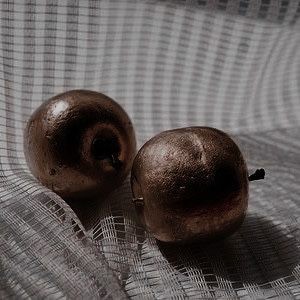
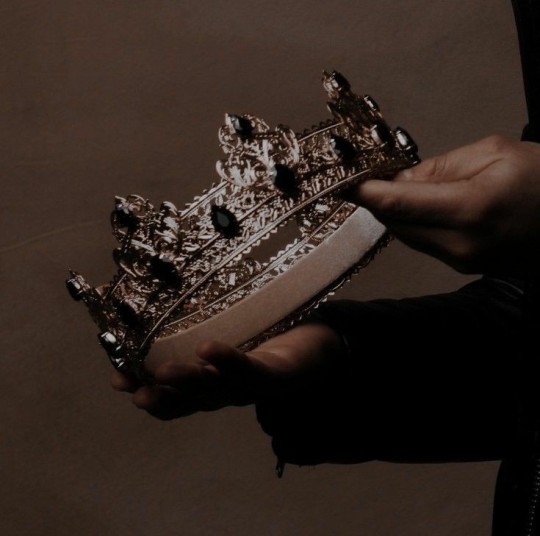
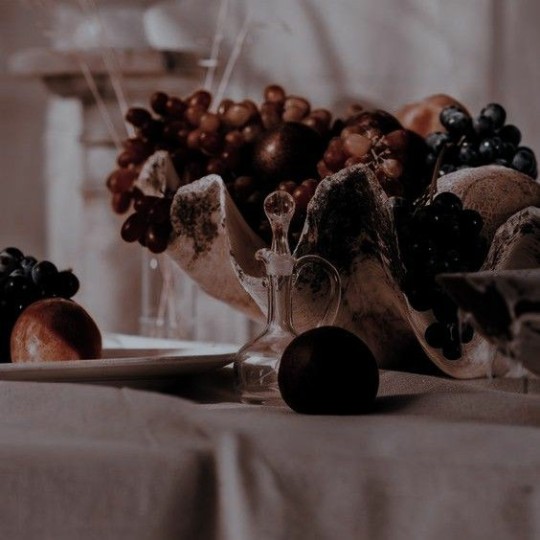


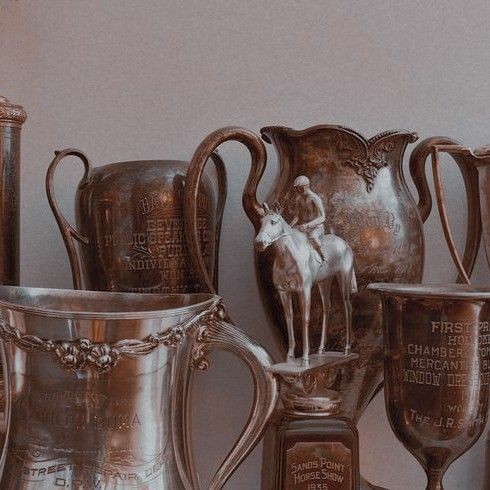

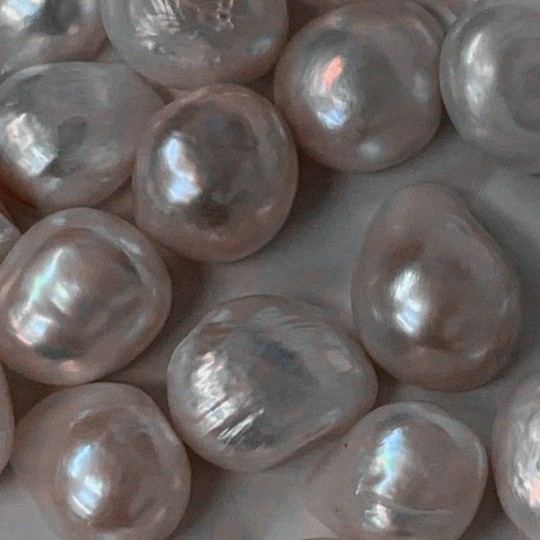
Deity Aesthetic: Hera
Queen of the Gods , Greek Goddess of marriage, women, childbirth, and family. Patroness and protectress of married women.
Some of her titles:
Queen of Heaven
Queen of the Gods
Queen of All Goddesses
Queen of Olympos
Glorious Goddess
Goddess of Childbirth
Golden One
Golden Throned
Mistress of Animals
Mother of Showers and Wind
Hellenic Epithets:
Zygia (Uniter)
Bounaia (of Bounos; a hero)
Ammonia (of the Oracle of Zeus Ammon in Libya)
Gamelia (of Marriage)
Lakinia (of Lakinios; a hero)
Leukolenos (White-Armed)
Limenia (of the Harbor)
Nympheuomene (Led as a Bride)
Akraia (of the Heights)
Pais (Maiden)
Pelasga (Pelasgian Woman or Goddess)
Prodromia (of the Pioneer)
Symbolism of Hera:
The diadem
The scepter
The pomegranate
The lily flower
#hera#hellenic polytheism#hellenic paganism#hellenism#hellenic pagan#hellenic polytheist#greek gods#hellenic deities#hellenic gods#hellenic worship#deity worship#deity work#deity moodboard#moodboard#hera goddess#greek pantheon#ancient greece
260 notes
·
View notes
Text
Hera and the River Gods of Argos

"I go now to the ends of the generous earth on a visit to Okeanos, whence the gods have risen, and Tethys our mother who brought me up kindly in their own house, and cared for me and took me from Rheia, at that time when Zeus of the wide brows drove Kronos underneath the earth and the barren water." Iliad 14.200
As early as the Iliad, Homer claims Hera was raised by Okeanos and Tethys, the river encircling the world and his wife the goddess of all freshwater. In the Iliad, Hera, as the goddess of marriage, wishes to travel to see them to fix their broken marriage so they may forever call her dearest and worthy of reverence. While there are several stories of where Hera was raised after being disgorged by her father, this particular one is perhaps a nod to her oldest cult site and patron city, Argos. Argos is one of the cities that claims to be the birthplace of Hera, and has their own myth of her upbringing upon their riverbanks. Here she was raised by the Asterionides, not the titans.
"The sanctuary [of Hera] itself is on a lower part of Euboia. Euboia is the name they give to the hill here, saying that Asterion the river had three daughters, Euboia, Prosymna, and Akraia, and that they were nurses of Hera. The hill opposite the Heraion they name after Akraia, the environs of the sanctuary they name after Euboia, and the land beneath the Heraion after Prosymna. This Asterion flows above the Heraion, and falling into a cleft disappears. On its banks grows a plant, which also is called asterion. They offer the plant itself to Hera, and from its leaves weave her garlands." Pausanias 2.17.1
Hera’s special bond with the potamoi is linked to her patronage of Argos itself. Pausanias relates two local tellings of the story in which Hera won the Argolid in a contest with Poseidon, as judged by the river gods, or, the King Inakhos, eponymous of the local river. This story also cements the line of kings in Argos, as either the mortal Inakhos or the divine river of the same name was the ancestor of Phoroneus, the first man and supposed founder of the city.
“The land [of Argos] was without water [when Danaus and his daughters arrived there], thanks to Poseidon, who, in anger at Inakhos for testifying that the region belonged to Hera, had dried up even the springs.” Pseudo-Apollodorus, Bibliotheca 2. 13
"The oldest tradition in the region now called Argolis is that when Inakhos was king he named the river after himself and sacrificed to Hera. There is also another legend which says that Inakhos . . . was not a man but the river. This river, with the rivers Kephisos and Asterion, judged concerning the land between Poseidon and Hera. They decided that the land belonged to Hera, and so Poseidon made their waters disappear. For this reason neither Inakhos nor either of the other rivers I have mentioned provides any water except after rain." Pausanias 2.15.4
"They say that Poseidon inundated the greater part of the country [Argos] because Inakhos and his assessors decided that the land belonged to Hera and not to him. Now it was Hera who induced Poseidon to send the sea back, but the Argives made a sanctuary to Poseidon Prosklystios at the spot where the tide ebbed." Pausanias 2.22.4
While the bathing of a goddess’ image is a widespread practice, one particular instance of this is the yearly procession of Hera’s image south from Argos to the Kanathos spring in Nauplia. There, Hera is bathed and regains her virginity, presumably before her ritual marriage to Zeus. Pausanias mentions a potential mystery cult of Hera, and at the Heraion in the Argolid there is a spring that flows beside the temple where Hera’s priestesses also partake in their own ritual.
"In Nauplia is a spring called Kanathos. Here, say the Argives, Hera bathes every year and recovers her maidenhood. This is one of the sayings told as a holy secret at the Mysteries which they celebrate in honor of Hera." Pausanias 2.38.2
As the patron of Argos and undoubtedly concerned with the success and fertility of her beloved city, it is no wonder Hera has such recurring close ties with the rivers of her sacred land.
25 notes
·
View notes
Text
Olympian Deities: Hera
This is a brief overview of Hera
Realm: Queen of the Gods, Goddess of marriage, women, the sky and the stars of heaven
Parents: Kronos and Rhea
Offspring:
By Zeus: Hebe, Ares, Eileithyia, Angelos, Enyo, Eris
By Dionysus: The Charities
No father: Hephaestus, Typhon
Symbols: Royal scepter, diadem, lotus-tipped staff
Colors: Yellow, gold, white, royal blue, purple, dark green, grey, silver
Offerings: Honey, flowers, incense, perfume, pomegranates, bread, chocolate, pomegranate seeds, volunteering, donations to foundations for domestic abuse victims, taking care of yourself.
Sacred Animals: Cows, lions, cuckoos, peacocks, doves, carrion-crows, snakes, dragons, crabs, snails, shelled creatures in general
Sacred Plants: Pomegranate, lilies, poppies, irises, white roses, waterlilies
Element: Earth? Air?
Metals/Stones: Pearls, garnets, citrine, amber, diamonds, star sapphires, gold, silver
Number: ?
Planet: Venus
Time: ?
Tarot Cards: The Empress, Strength, The Hierophant
Altar Ideas: Peacock feathers, peacock images, cow patterns, cow images, cuckoo bird art, cuckoo clocks, family photos, throne imagery, perfumes, silver and gold jewelry
Epithets:
Alexandros: protector of men
Aigophagos: goat-eater
Akraia: she of heights
Argeia: she of Argos
Basileia: queen
Bounala: she of the mound
Boopis: cow-eyed, cow-faced
Leukolenos: White-armed
Pais: child
Parthenos: virgin; from the Parthenius river
Teleia: Goddess of marriage, matron Goddess, woman
Chere/Chera: widowed, divorced; lady of authority
Acraea: she who has a temple on a hill
Ammonia: derived from her worship in Elis
Antheia: blooming, friend of the flowers
Game'lii: one of the deities presiding over marriage
Hi'ppia: she of the horses
Hyperche'ria: the Goddess who holds her protecting hand over something; protectress
Pharygaea: derived from her worship at Pharygae
Sa'mia: derived from the island of Samos
Zygia: presiding over marriage; yoked, married
Nympheuomene: betrothed bride
Aphrodite: of Aphrodite
Ataurote: unmarried, unbulled, virginal
Prodromia: of the pioneer
Aeromorphos: having the form of air, derived from her union with Zerfs
Exacesterius: one who averts or cures evil
Callistephanus: beautifully crowned
Chrysothronus: she who sits on a throne of gold
Cydra: glorious, illustrious, noble
Macaira: happy, blessed
Pambasileia: queen of all
Pantogenethlos: all-generating
Pancrates: all-powerful
Potnia: queen
9 notes
·
View notes
Note
Prayer to Hera Basileia, in english.
How can I begin my song, o great queen? For there is so much to be said of you. That my words and honest intent, Hera Basileia, do you justice.
Akraia, lover of heights, from which the sight is clear. Presiding over cloud and peak, atop the very centre of the world, it is your word that echoes. Lady of Argos, monumental and imposing, nurturing and all-encompassing, your rule is adamant and just. Hyperkheiria, your might alone protects and keeps darkness at bay. Panbasileia, imposer of boundaries, you, o great one, command the path of the wind, much like each mortal under your guidance must learn to hold their own reins.
Majestic one, with glittering eyes and soulful stare White-armed queen of heavens and most beloved of Zeus Basileus You inspire in us the will to stand and face adversity and to see, amongst the mist, a blooming field and shining heights. I am thankful to you, o Basileia. That my words and deeds do please you this day, and in the days to come.
by @matriarca-inodora
27 notes
·
View notes
Text
Medea didn't kill her kids.
Consider the following:
Medea and her Children in the Scholia in Euripidem (Ancient commentaries found in some of the manuscripts)
From E. Schwartz, Scholia in Euripidem, vol. 2, Berlin, 1891 (reprinted 1966).
ad 9 (the scholion to line 9 of the text of Medea)
A story is prevalent [? or widespread*; literally much-flitting] among scholars, which Parmeniskos also sets forth, that Euripides, upon receipt of five talents from the Corinthians, transferred to Medea the charge of murdering the children. For, in fact, Medea’s children were murdered by the Corinthians, incensed over her wanting to be queen because Corinth was her father’s allotment, which he transferred to Medea. Hippys and Hellanikos are our sources for her life in Corinth. That she was queen of Corinth Eumelus and Simonides narrate. Mousaios in the Isthmia relates that she was immortal and in the same work expounds upon the rites of Hera Akraia.
ad 264 (the scholia to line 264 of the text of Medea)
Parmeniskos writes word for word the following:
The Corinthian women, not wishing to be ruled by a foreign woman and sorceress, plotted against her and killed her children, seven boys and seven girls. (But Euripides says she only had two.) They were being pursued and fled into the temple of Hera Akraia and sat as suppliants at the altar. Even so the Corinthians did not keep their hands off them but slit all their throats right on the altar. A plague fell upon the city and many people perished of the disease. When they consulted the oracle the god told them to expiate their guilt for Medea’s children. And so up to our own times every year seven boys and seven girls of the most notable citizen families among the Corinthians spend a year in the goddess’ precinct and with sacrifices appease the wrath of Medea’s children and the goddess’ anger on their behalf.
Didymus, however, disagrees, citing the evidence of Kreophylus:
For it is said that Medea during her stay in Corinth killed Creon, the ruler of the city-state at that time, with poisons; that in fear of his friends and relatives she emigrated to Athens; but her sons — since they were too young to travel with her — she placed upon the altar of Hera Akraia, believing that their father would look after their safety. But Creon’s relatives killed them and spread the story that Medea had killed not only Creon, but her own children as well.
5 notes
·
View notes
Text
Deaths in Corinth
"Medea, what have you done?"
Medea looks up from Medeios greedily sucking little face as he tries to empty her out to still his hunger, and though she'd been worried by Jason's tone alone, the expression on his face leaves her breathless. The dark gazes of two of the most hostile and contrary elders that are supposed to be their ever-ready and ever-helpful advisers and instead have been like snakes in the grass since she and Jason arrived silences for yet another beat or two. A shiver, chill like the grimmest wind blown in from the mountains, steal down her spine. Clutching her youngest child closer to her breast - which he doesn't mind at all, just yet, Medea straightens up.
"What am I supposed to have done?" she asks, voice light, spine stiff, her hands wishing to curve into claws in answer to those dark, dark eyes of the old men flanking Jason.
"Th--- You, the children, Medea. How could you?" Jason is moments from crying, his voice breaking twice and threatening more, and he is utterly unknowing of the sneering little look from one elder. The other has better control, but Medea can see the aborted twitch that reveals the suppressed eyeroll. She can also see what has happened, and Medes wails a protest as she inadvertently rips him from her breast to pull him close, up against her instead of peacefully laying in her arms, little hand squeezing her full breast.
The children. The children, all thirteen of them, that she'd left at Hera's sanctuary last night as she'd done for the last several years on this very night every time it came by again, to see if this would be the night Hera would fulfil her promise. The children are dead, and those vulture-eyed, dog-mouthed men flanking her husband have killed them. Killed them because they had never been happy at foreigners ruling them, one more foreign than the other, and that a woman should be the primary of said rulers.
Or they have had a part in the killing in some way, even if they didn't do it themselves, which makes them just as guilty as she, though the people she has indeed killed were not her own children.
Medea grits her teeth, then opens her mouth, but between that and uttering her next few words in defence, she can see it doesn't matter what she says. They have poisoned Jason against her, and they have broken him.
"When I left our children at the sanctuary, they were alive, Jason. What has happened?"
The truth is sludge in her mouth, and they all know she's understood what's happened, but her quick understanding has only damned her further. She can see what little light, mad and needy, that still clung to Jason's brown eyes go out like she'd snuffed a candle with her last words. He's not going to survive this. She could drag him with her and he will still die, for it will take her too long to convince him she isn't at fault. In fact, she might have to fight for her life as he wished to kill both of them in whatever last spark of actual agency that might still exist in him.
Oh, Jason.
Too easily downtrodden, always looking for others to lead, so often laid to catastrophising. She'd never minded, not really, but now his faults have allowed others to break him, and they know it.
The only reason Medea isn't planning some way to take suitable revenge is that she knows death will be coming for them anyway, and for the whole of Corinth. They have killed in Hera's sanctuary, and more than that, they've killed children the goddess have promised a gift to. Maybe if the goddess had actually given her gift earlier, they wouldn't be here, but now it is late, all too late, and Medea's galloping heart and tight grip on her last living child can't quiet or soothe Medeois.
The room rings with his cries, and for now that is the only mourning his other siblings will receive. Jason as well, dead man walking as he is. She just hopes he kills himself in a kind way, but she has a feeling he will wish to punish himself when he has done no wrong.
"Medea... You're the one who was last seen with them, and they're dead." Jason closes his eyes, and she can breathe a little more easily for being out under that haunted, broken stare. Enough to jog her thoughts into more than a swirl.
Great Helios, beloved of Rhodes, grandfather, hear me! I am without recourse, cornered like a lioness with only one cub left, the strong father lying slain before her with his great mane covered in gore. Aid your family if you ever had any love left for your mortal children!
She can only hope he has heard her and, more than that, is willing to offer aid that might be when and where she'll need it.
"And it is me you think would kill them? I, who have fed them at my breast, each and every one of them, who have given them to Hera Akraia in the hope of immortality for them, as I was promised?"
Jason flinches at her words as if she's punched him, but, compared to what might have been the result years before, now it doesn't urge him to listen to her. Instead he merely hunches, as if his spine had just been broken, and he looks at her with wide, begging eyes and holds his hands out. They're strong, still, but trembling, revealing the sensitivities and weakness that were always there.
The poison is too deep, and she can feel the smug pleasure of the two elders lurking behind her husband.
"Please, Medea. Just confess," Jason whispers, his voice raw like the blood surely coating Hera's altar right this moment, for Medea doubts the Corinthians have washed it away just yet. No, they needed to have Jason see it, needed him to know it was still there, and it needs to stay until she's dead, until Jason is dead too. It will only condemn them further.
Oh, she has killed for this man, and he has been dear to her, but she cannot kill herself for him as well.
Medea smiles tightly, her ears ringing with Medeios' cries, and stands up. Shifts Medeios onto one arm, tipping her to lie against her chest, head cushioned against her shoulder, and at last his cries dwindle into sobbing hiccups, slowly calming just as Medea's heartbeat is. The breeze coming in from the window is warmer than it was minutes ago, and there's a golden tint to the light that wasn't there before.
"I can't confess to a crime I haven't committed, my heart. I might have killed my brother, I might have killed Pelias, bu---"
"And you killed Kreon," one of the men sneers at her, righteous when there is the blood of thirteen children on his hands. Medea laughs, mockingly. Jason only slumps further, but there's a brief frown she can just barely see on his forehead, there and then gone. He doesn't believe that, at least, well as he might when he was there right with her being summoned to Kreon and heard the man himself.
"I gave Kreon the assistance he wished for, after he'd already proclaimed my birth, as well as that of my husband’s, made us worthy to rule this fair city of yours that you have besmirched with innocent blood. I have killed, but not my children."
Jason, her poor, poisoned husband, starts crying. Medea's heart hurts, but there's nothing she can do. Not when he draws his sword - and not to turn on the men behind him, for the poison they have given him have eaten its way far too deep into his heart, via his eyes and ears. A far more powerful poison than any magical such she could devise.
She smiles as he makes ready to charge her, but he's slow, so slow she has all the time she needs to draw the fragile little glass bottle from the layered flounces of her skirts, and as she throws it he looks almost grateful for it.
Oh, Jason.
She can't kill herself for him, but she can also not kill him, for either of them.
That will be her weakness and another pain to bear into the future, for this is only a distraction, a way for her to escape.
Smoke explodes up as the glass shatters, noxious and dark like the ink of squid, and she is the squid fleeing. Medea whirls around, throwing herself at the window, then out of it, and she almost falls straight off the chariot as she hits it hard with her shoulder and hip, her weight and speed tipping it sideways. Clutching at the rim with strength only a desperate mother could know, Medea manages to pull herself up, grab the reins and urge the shining drakones to move, all without falling off or losing her baby.
Her baby, who is giggling now, despite the shock of their flight, and Medea looks down with burning eyes and tears spilling down her cheeks to the boy in her arm, chewing at one of the golden rings that binds her tresses. He looks like Jason.
"Don't worry, my eyes," she whispers, leaning down to kiss the top of his soft head, tiny wisps of dark curls caressing her chin and cheeks while tears caress Medeios' skull, "they might have gotten all the others, but they won't get you. Or me."
Exhaling sharply, Medea straightens up, tightens her grip on the reins as she turns the snakes eastwards, and lets the golden wind dry her tears.
***
So, this is inspired by, and drawing from, several old/er sources (Pausanias, Eumelos, scholia on Eumelos) for what happens in Corinth. Medea seems most often to have killed her children, either inadvertently, or, as in Euripides, intentionally. The scholia says it was the Corinthians, angry at having a foreigner ruling them, for Eumelos in his Korinthiaka had Medea (and Jason) summoned to Corinth and given rulership, explicitly on the grace of Medea’s bloodline. The children are killed in the sanctuary of Hera Akraia (by the Corinthians in this version), where Medea has been leaving them in expectation of Hera fulfilling her promise to her (here, my intention is that Hera’s promise is the reward for Medea’s help to kill Pelias). In the version where the killings happen inadvertently, Jason can’t forgive her and leaves for Iolkos. So what happens as a background to this is Medea, as an agent of Hera, kills Pelias for his insult to her, she and Jason have to leave Iolkos, they are summoned to Corinth and given rulership, Kreon dies (childless, hence why Medea and Jason have been summoned).
I would honestly not have done this at all but reading all this in Early Greek Myth by Gantz I was just slapped in the face by inspiration, and as much as I am so damn cranky over so many people crowing about Medea doing nothing wrong (her brother and her children says hello), I am pleased with this.
9 notes
·
View notes
Text
Juno as Possible Co-Ruler For Capricorn
Juno as possible co-ruler for Capricorn
Hello everybody, I hope time is finding you in good spirits wherever you may be. Time, and karma are going to be very major themes and motifs in this analysis.
Juno commonly referred to as Saturnia in ancient Rome, and affectionately referred to as Aegophagus which translated is goat eater in the temple of Akraia. She is a Queen of Heaven ((The MC)) in Greco-Roman mythos, and is Queen of the gods/Olympos, having dominion over worldly success, power, royalty, legacies, authority, government, marriage and childbirth. Juno was discovered when the sun was eight degrees in Virgo, eight is the number of Saturn. She was third born from the union of Kronos and Rhea, three is the number of Jupiter. We commonly know Juno from her marriage to Jupiter, king of the gods, and their wild, bombastic love life, rife, with perfidy, and betrayal. How they came to be, is a very simple story though, Jupiter was rather taken with Juno (incest is valid when you don’t have DNA lol) and tried to woo her, yet she deferred his advances. Jupiter came up with the plan to disguise himself as a wounded cuckoo bird on her path, naturally, she took pity on the poor thing, and took it to her breast, and in a flash, it shifted back into Jupiter and he ravaged her, he then blackmailed her and told her he would tell the other gods of heir encounter if she did not marry him, and so she conceded, and the cuckoo became one of her sacred animals. Jupiter is the manliest of men, and was not sated with one woman, and naturally did as all kings have the right to do. Juno was deeply hurt by this, and she grew jealous, bitter and vengeful, often cursing the mortal women who would make the mistake of sleeping with her man, an example being the Nymph Echo((the youthful yin)). Echo was an Oread, a mountain nymph who could only repeat what she had heard, her beauty enticed Jove to come lie by her side. When Juno grew suspicious, Echo projected her voice to lure juno away with deception. Juno saw this and grew angry, cursing her so that she may only use her voice for a moment and the nymph was sorrowful. However, she is also very capable of blessings as well, as seen with Jason and the Argonauts. Juno was not only offended by her husband’s lovers, but the offspring he bore as well. Popularly, Hera was no fan of Hercules, and was even hurt by the birth of Artemis and Apollo((sun and moon)), however no birth hurt her quite as much as the birth of Athena. Athena was birthed out of Jupiter’s head, and he produced her alone ((it was metis, the goddess of wise counsel in some accounts)) so she decided she could make children of her own, alone, without Jupiter. From her sprang Mars((pure fire, yang)), and Vulcan((Earth fire, yang)) , mars was strong, belligerent and wild, yet Vulcan was not, he was deformed. Juno was infuriated by this, by her own inability to be more, and reach the top, and promptly chucked him down the mountain side((accomplishment, achievement, goals, hurdles)) , where he landed in he sea ((emotion, nurturing, wisdom, unconditional love)) he would later be known as the god of ingenuity, metal, volcanoes, and invention.
Analyzing the core themes in the symbols and ideas, we come to her sacred animals, the cuckoo, and peacock. The cuckoo is many eastern European countries is a symbol of loss, or misery because of its odd cry “You can only understand the song of a cuckoo if you suffer from pain.” This is one of many sayings about this birds tie to pain. The cuckoo is more commonly known through its association with the clock, connecting it to time. The peacock is a symbol of totality, because it connects all colors into one in completion, and the eyes are sometimes considered stars in the dome of heaven, and is associated with eternity and the crystallization of the human spirit and potential through maturity. Peacock is also associated with royalty, integrity, and respect, and many of the stars from the constellation Pavo ((peacock in latin)) can be found littered throughout Capricorn. In the stories, we have the theme of control, and power occur often, she is a lady boss, and in control of herself((externally)), she does not fear her husband, he sometimes even hides from her wrath. She is Karmic in nature, every time Jupiter over reaches, she teaches him a lesson, yet she always returns, loyal, steadfast and dutiful, she is committed to her oath, and duty to being a wife. However even before her wifehood, there is evidence that Junos worship, predated Jupiter in a Matriarchal society that historians, and romans alike tried to destroy all evidence of. Her attendant, Iris, the rainbow goddess is her messenger where as Mercury is Jupiters. Juno has tons of Capricornian themes.

In the discovery chart, I divined the time as producing a second decant virgo ascendant, I think this plays wonderfully with how Juno sees the world, and navigates it, she’s a hardworker, shes determined, and most importantly, she is poised. Composed, and regal, she looks at things analytically, and with an eye for business, as the second decant is the saturn decant, and saturn is in Libra Exalted in the first house conjunct mercury, the ruler of the first in the first in Libra. Showing how Juno sees the world through a very lawful, and tempered way.The second ruler of the first house, Ceres, is in Aries in the eighth retrograde, showing the dark, jealous, fearsome energy associated with her, she is a powerhouse who should be feared and respected. This all ties in with the beautiful theme of Virgo, who is often tied to the virgin Mary in christian mystic traditions, and is also known as a queen of heaven. In mythology, sometimes Juno was referred to as a virgin because she would renew in the springtime. The ascendant is conjunct the sun from the twelfth house, showing how juno feels crushed under the weight of men, her identity, who she is, is drowned out by what others have shaped her into, despite her protests, this shows that she has a tragic, almost melancholy view of the world, and is quite desperate for control over her environment, and tumultuous emotions. The ascendant is also conjunct the asteroid herakleitos, another name for herakles, showing how those who seek to destroy her manifest strong yang energy because its conjunct the sun. Her ascendant is opposite pluto in the sixth bringing on that intense, raw, unbridled laser like focus and determination, with the dark obsessive and vengeful energy we all expect, The ascendant is also opposite pallas athene, showing a nature gift at being able to read, others, and use diplomacy to your advantage, and a need for justice, but an inability to reach it. In the first we have mercury and saturn conjunct by zero degrees, three degrees in libra in the first decant. This shows that Juno loves structure, patterns, tact, sophistication and is very, very in control of how she presents herself to the world, she rarely lets go of the reigns of control, and she doesn't believe in wasting words with mercury conjunct saturn, it's all very calculated, cool, and precise, mercury and saturn are opposite Ceres in aries in the eighth house, showing that she just wants to let it out, she needs someone to give her permission to let loose, but she would never let herself lose herself to her inner warrior or temper like that, Saturn and Mercury are also opposite Juno rx in her fall in aries in the seventh house, showing that her relationship to authority is restrictive, and anxiety producing, and she may be known or her karma. Libra is in the second, the rulers of the second are in the sixth conjunct pluto, and eleventh conjunct moon, Juno finds beauty in nature, organization, and in health, she enjoys good food, and is very politically aware, juno finds beauty in political and social power, she bases her values on nature, and tradition, and money, and knows how to network, and run a corporation as the eleventh house does. Uranus is in the second in libra, emphasizing the eleventh house themes, she has fluctuations in her security, and rarely feels safe, she's very traditionalist, and doesn't adapt to the times well with uranus in the second, jupiter is in scorpio in the second which shows how she has lots of power, and can be a little miserly and clingy to her resources out of fear that they won't be there when she returns, she is excellent at saving and amassing money, and putting it towards her legacy and her name, this is her lover, Jupiter, he is an asset to her and a resource, however being in scorpio, he is involved in secretive and shady things but is very powerful and virile. Jupiter is square her moon by zero degrees, showing a very intense, and emotionally raw inner world, with high aspirations, seeking comfort in the arms of a lover who wants to be free, The third house is scorpio, the rulers of the third are in the sixth and the tenth, juno loves to think and talk about her career, and her aspirations, and her reputation, these things are often on her mind, and mean a lot to her, the neighborhood is on mount olympos. Juno has a lot of dark, angry and sorrowful thoughts that are polarizing, and often times thinks of the power she needs to achieve it, her voice is sexual, and dark and mysterious, she may be seen as a villain. Neptune is in the third, so what she sais can be taken the wrong way or misinterpreted, and she may even experience confusion around what she believes and does not believe, with neptune in scorpio power is divine to her, as is sex and the occult, she often times transmuted those who would touch her man into different objects or creatures. The IC is in sagittarius, the ruler being jupiter, the ruler of the fourth is in the second in scorpio, this shows that the home is opulent, there is wealth, there is a lineage of power, and there is beauty and wisdom in their traditions, her home is olympus, home of the gods, fitting seeing as Jupiter the planet has ties to the concept of divinity, her core foundation is laid in faith, however with chiron retrograde in capricorn in the fourth house, who she is at her core is wounded, and lacking in worth. Juno conceals and doesnt feel, but its within her, the wound surrounding authority figures, and fathers, ever since her birth, men have been out to get her. Her home is broken, and she may often feel victimized or broken when with family or being a nurturer. Yet she persists, because the essence of ness and naturality, Vesta is in the fourth in capricorn conjunct Chiron, despite her wounds she will always fight to reach the top and achieve her goals, she is devoted to being professional, concise, traditional, . Chiron and Vesta are opposite her mars, showing that she feels wounds around what she can do, and what she can achieve on her own, yet she is devoted to always trying to come out on top. Vesta and Chiron are square juno and Ceres, this shows that there are intense wounds involving trust, and the reputation is known for being wounded or hurt, damaged goods, however, she is actually so loyal its destructive, lots of betrayal. The fifth house is housing capricorn, showing that she does not in fact like to “date around” she takes it very seriously, and encounters many trials and delays in finding the love she is looking for, she is a traditional romantic, but keeps it under wraps, the ruler of the fifth is in the first in libra, showing that she craves romance, and peace, and likes relationships to be equal, however using juno as coruler, it would place the other ruler in the eighth house in aries, showing that she wants her relationships to be intense, merging, and climactic, she likes to be in control in relationships. Her NN is in Aquarius ((conjunct echo, isnt that cool?)) its also conjunct a silly asteroid i pulled up to chuckle at, Tea. The asteroid Tea is opposite venus and moon in leo, showing that its her destiny for her relationships and feelings to be broadcasted to the public, and thats tea ((her NN being in aquarius is super symbolic since three of Junos major holidays are in february.)) for fun, Juno likes business, politics, traditional things, art, the occult, and bdsm in her free time. In the sixth house we have aquarius, the rulers of the sixth are in the second and first, showing that a major part of her routine, is her appearance, and making money,, she has pallas athene in her sixth house in pisces conjunct her Dsc, the house of open enemies, since her step daughter pallas athene is/was known to make her quite upset, but this shows that her daily routine may involve being diplomatic, tactful and strategic and she may see health from a very cerebral point of view, she loves sophisticated and complex, rich foods, pluto is in her sixth conjunct the dscm this shows her penchant for dark, upsetting relationships, with extreme power dynamics, but they bring her power and wealth despite the pain. Her daily routine may involve being self destructive. In her seventh is herself, she is very relationship oriented, and as i said, i do think that she exalts in libra, this shows that with Juno in aries rx, her reputation is that on a wild, aggressive, bombastic woman who doesn't take no for an answer and takes what she wants and is very selfish, it shows a toxic relationship to authority,, and that her partnerships are always filled with strife and conflict. Ceres in the eighth shows that she loves to take care of people by showing them the depths of who they are and the dark side of life, showing all the ugly and letting them be what they have always been and will always be, Ceres being on her physically y shows that she has deep ties to mother earth and the ancient ways, and craves stability, organization and structure. Juno is square mars, showing unstable and painful connections, and a reputation for having a bad temper. Eighth house is empty, housing aries, ruler of the eighth is in the tenth, showing that she approaches sexuality and change seriously and with thorough investigation, Taurus is in the ninth, ruler of the ninth is in the eleventh, showing that she feels spirituality, travel and higher learning should be at a communal level, and should be on higher minded ideals. The MC is in Gemini, the ruler of the MC is in the first in Libra conjunct Saturn, showing that she has a reputation for being classy, sophisticated intelligent and refined, she may be constantly going through things, or have her drama out in the open. She has Mars, her son, in the tenth, showing that she demands and takes authority whether given to her or not, her mars is conjunct lilith in the tenth, showing she can have a very virulent and toxic darkly feminine reputation, she has goals and aspirations of being in power and in control, and masters these things. In her eleventh we have her moon, which is conjunct venus in leo, showing that she tries to escape her feelings, but feels them deeply, she tries to repress them, but they always explode in theatrical ways eventually, however she is in control of them. She is deeply romantic and affectionate in ways some do not understand, and very loyal to those who she calls friend the moon and venus are her friend, the ruler of the eleventh is in the eleventh. The twelfth house is housing leo, showing that the source of all of her pain, is her ego, and need for status, the ruler of the twelfth is in the twelfth, her sun is in virgo in the first decant, showing how she is deeply invested in the earth, and in the details. She is constantly working and seeking improvement in all things and her workaholic tendencies may bring her pain.
Thank you for sticking through all that! I genuinely do feel that she is a good candidate for coruler to Capricorn ((not that anyone was looking)) and on the topic of her not making sense exalting in Libra but not being domicile, allow me to explain. Juno cares a lot about her public image, shes a career women for better or worse, and to many, a lot of times for worse, this is who she is without frills at neutral, however in Libra, she becomes loved, wanted and appreciated which are all things she years for deeply, with moon in Leo she has a literal need to be worshipped. The reason why she is uncomfortable with Martian energy in Aries but not scorpio, is because the image she presents in aries is completely undesirable, it is not her way, she loves for her son to be with her, when she is in control, however being with him while he runs the show is stressful. She is controlling, perfectionistic and stressed easily, and being in a realm of fiery chaos, sex and blood shed with loud noises, and clashing of steel is not her forte, however, being in a dark cave plotting amidst the scorpions, and putting battle plans together, paints her as manipulative, dark, and controlling which she can live with, she loves her son, but she deeply enjoys him in his darker mode.
Thank you, I hope you all have a wonderful time wherever you may be.
#astrology#western astrology#juno#asteroid juno#juno asteroid#asteroid 3#aries#taurus#gemini#cancer#leo#virgo#libra#scorpio#sagittarius#capricorn#aquarius#pisce#astrologer#tumblr astrology#mythology#hera#zodiac#astrology thoughts#astrology theory
45 notes
·
View notes
Quote
They paint me golden, jewelled, crowned, and perfect. they paint me a Queen. They paint me pretty. They paint me, behind Him. They paint me less. lower. left. They paint me His. They painted me in their rigid shape, and when I broke away from their pretty, perfect, Queen. they called me demon witch merciless vengeful Goddess. as if the words left a bitter taste on their tongues. as if I wasn’t. as if I wasn’t Justified. They made me a Queen. Hera Olympia, Basileia, Gamelia, Akraia Goddess of Marriage. Goddess of Fidelity. the greatest joke ever played on me. They gave me a husband who did not love me as he should. Fickle and unfaithful and cruel who seduces and destroys and takes and takes and takes and takes. Then they scorned my anger. They criticised my vengeance. But I learnt. I wore my heavenly crown. sat on my golden throne. wore my ring and brilliant jewels and let loose my wrath. I could not hurt him so I hurt what I could But I am not sorry. I never will be. I have learnt it is better to be a madwoman then to let them just paint me, Pretty.
Pretty was the worst thing they called her
J.E
19 notes
·
View notes